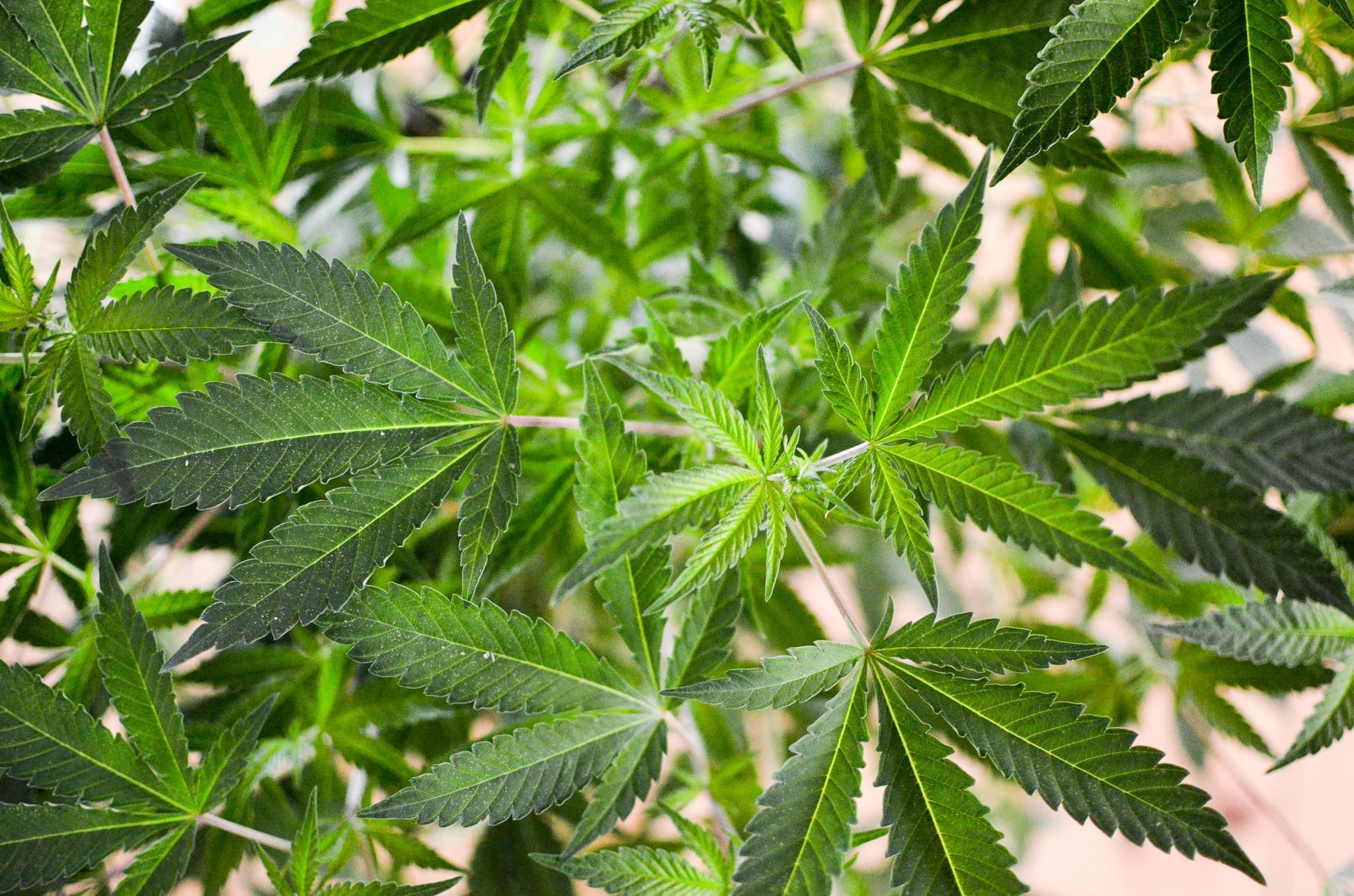featured
Japanese Rebellion: 7 Years in Prison for Smoking Weed… and They Do It Anyway
Published
3 days agoon

Surprisingly, many of the countries that today have the strictest drug policies also hide a history where those same substances were of great cultural significance. For example, Japan once boasted a thriving hemp industry; today, cannabis use carries serious legal and moral penalties. Weed users face a confusing and dangerous political landscape, as well as a deep social stigma.
So, what’s the legal status of the plant in Japan? While medical cannabis is technically legal, a system to endorse it still has to be implemented. As for adult use, this is one of the few countries that, in addition to prohibiting the possession, cultivation, and sale of cannabis, also penalizes consumption. You read that right: in Japan, the simple act of smoking a joint can carry a sentence of up to 7 years in prison.
Remarkably, neither strict regulations nor public shaming and exposure seem to have deterred part of the population from using cannabis. Quite the contrary: arrests related to the plant have been increasing in recent years.
So, it’s worth asking: why do people continue to smoke weed in Japan? Why risk spending almost a decade behind bars (not to mention the enormous social stigma) for a simple joint?
These were the questions that led Dr. Yuji Masataka‘s team, a member of the Japanese Clinical Association of Cannabinoids (JCAC), to conduct this research, published in Drug Science, Policy and Law. We spoke directly with Dr. Masataka, who has an interesting track record in cannabis education in the country, with projects like Green Zone Japan under his belt.
Why do you smoke weed? Japanese people answer
This isn’t the first time Dr. Masataka’s team has embarked on this line of research. In 2021, they conducted a survey with more than 4,000 responses from Japanese cannabis users—the largest cross-sectional study of its kind ever conducted there. It was from these results that they concluded “the actual health risks associated with cannabis use may not be as high as widely assumed,” explains Masataka.
To delve deeper into the issue, the researchers conducted a series of interviews that would become the Smoker’s Story Project. Inspired by Paul Auster’s National Story Project, “we aimed to collect and share individual stories on a public website,” explains Masataka. “While each account was personal and unique, we believed that compiling them would begin to reveal a broader picture of cannabis use in Japan.”
And indeed, it did. The current research project features interviews with 64 Japanese people (39 men and 25 women) over the age of 20. While this sample may seem small and is not meant to be representative, it is larger than the researchers expected. “We were initially concerned that people would be hesitant to speak about their illegal behavior—but to our surprise, more participants volunteered than we had expected,” Masataka admits. “We believe this was largely due to the trust we had built within the community through our ongoing public education work under Green Zone Japan since 2017.”

Most participants shared that they were introduced to the plant through friends or close associates, largely out of curiosity. Despite initial anxiety or mistrust, firsthand experience quickly demonstrated the low risk associated with cannabis: in fact, many came to view it as less dangerous than tobacco or alcohol. On the other hand, this initial exposure often occurred “in the context of psychological distress or adverse life experiences,” such as bullying, abuse, strained family relationships, or work-related stress.
However, continued weed use is related to a broader range of factors. The pleasurable psychoactive effects and relaxation are strong motivations, but many also admitted to using the plant to improve their physical and mental health. Relief from anxiety, stress, depression, or pain was a highly reported motivation in the sample.
Likewise, some people turned to cannabis as a form of self-treatment, for example to stimulate appetite. Others even substituted other substances (such as prescription medications or alcohol) with marijuana. This point is particularly interesting, as the use and abuse of over-the-counter and/or prescription medications has become a public health concern in Japan. These anecdotal reports add to the growing evidence that cannabis can serve as a replacement for these drugs (which are objectively more dangerous and not always effective against symptoms), or as a harm reduction tool.
Additionally, those surveyed mentioned a wide range of benefits that go beyond mental health in its strictest sense, more linked to well-being, self-care, and personal development. The increased creativity, motivation, and enhanced sensory perception brought on by weed helped many function better in personal or professional settings. Others use it as a tool to promote emotional growth and enrich both their inner world and everyday experiences.
Its use was also reported to alleviate difficult or stressful emotional situations (parenthood was mentioned in some cases). Shy individuals, meanwhile, reported improvements in their ability to communicate, connect, relax, and feel confident thanks to the plant. Several respondents also attributed it to “fostering a more compassionate and optimistic mindset.” All of these factors help manage the stress of today’s world, improving quality of life.
“Cannabis users in Japan are often reduced to stereotypes, but their actual reasons for using are complex, personal, and deeply human,” reflects Masataka. “Our research gives them a voice and shows why people continue to use cannabis even under such harsh laws.”
Of course, the plant is not exempt from unpleasant side effects (such as dry mouth or fatigue), but the interviewees generally found them of little concern. In fact, the “gateway drug” hypothesis—the idea that using marijuana will inevitably lead to harder drugs—was roundly rejected. What’s more: for these participants, the most negative factor about cannabis is simply its illegality.
What a Paradox: Japan, Marijuana, and Health
As previously mentioned, cannabis’ current situation in Japan is relatively new. Until less than 100 years ago, says Dr. Masataka, hemp cultivation was deeply rooted in cultural and agricultural traditions, used for textile and religious purposes. It wasn’t until World War II that prohibitionist policies were adopted, courtesy of US occupation forces (along with a host of other measures and practices that continue to harm the Japanese people to this day).
“Over time, this law [the Cannabis Control Act], combined with aggressive anti-drug campaigns—transformed cannabis in the public eye from a traditional crop into a symbol of criminality and moral decay,” the doctor explains.
In Japan, drug use is still viewed as a moral failing rather than a public health issue. “Media coverage and government messaging tend to lump all drugs under a single banner of danger,” Masataka explains. “As a result, cannabis users face not only legal consequences but also deep social stigma. However, we are starting to see a slow shift in public discourse. There is growing interest in distinguishing medical use from recreational use, especially as global trends evolve.”
In fact, one of the study’s most revealing findings is the enormous gap between the Japanese government’s prohibitionist rhetoric and reality. Currently, cannabis education provided by authorities comes across as extremist, not to mention outright false. Thus, the research highlights the discrepancy between the stereotypes about cannabis users promoted by drug education and the experiences of actual users.
Current drug education is plagued with claims such as “a single use can lead to dependence,” according to the research. 100% of the testimonies received agree with the overwhelming evidence accumulating against this rhetoric.
In fact, as Dr. Masataka explains, “there has been very little research on whether cannabis use actually causes harm to users’ health.”
It should be noted that this situation poses several problems. On the one hand, people may underestimate the risks that do exist around substance use. Indeed, informed and responsible use is always safer than clandestine and blind consumption.
On the other hand, fear of repercussions can lead them to not inform their healthcare professionals about their use. According to the study, some patients have paused prescribed treatments without informing their doctors, not to mention the fact that cannabinoids can interact with certain medications. Therefore, informed support is crucial.
Properly educating the medical and scientific community will help protect the population from the real risks, not only of drugs, but also of ignorance. This is why the study advocates for establishing “legitimate pathways for medical cannabis use,” and sharing data on said use to “improve patient-centered care and contribute to the development of more effective, evidence-based healthcare services.”
What’s more, biased misinformation spread by authorities not only undermines the health (and, why not, the intelligence) of the population: it also erodes public trust in institutions, as stated by the research.
How the Future of Cannabis in Japan Could Be Different
The team behind the study hopes that their findings “help foster better public understanding and spark meaningful discussions about cannabis use and policy in Japan.”
“By highlighting that many users turn to cannabis for self-care, stress relief, or symptom management—often in the absence of other accessible options—we hope policymakers will recognize the need to create safe, legal, and medical frameworks to support those needs,” says Masataka. “Our long-term goal is to reduce harm by replacing criminalization with compassionate, evidence-based approaches.”
It’s also worth noting that Japan is amidst an unprecedented mental health crisis. While not a particularly original development (the number of countries or regions in the same situation does nothing but increase), the country’s suicide rate is one of the highest in the world.
The experiences shared by users (as well as research from around the world) strongly suggest that marijuana could help with this situation. Furthermore, let’s remember the plant serves as an alternative to addictive opioids, which are a serious problem in Japanese society. In this context, the Japanese government seems to be shooting itself in the foot.
But all is not lost. According to Dr. Masataka, several measures could improve the situation. First, it is essential to introduce medical cannabis frameworks to ensure safe and legal access for patients. The doctor also advocates reforming criminal penalties for simple possession and use, focusing on harm reduction rather than punishment. It is also imperative to promote public education “based on science, not fear, so that people can make informed decisions.”
Fortunately, such an approach is gaining popularity among political actors around the world, and while it continues to encounter resistance among more conservative sectors, the infamous War on Drugs seems to have its days numbered.
This article was first published on El Planteo.

Author: mscannabiz.com
MScannaBIZ for all you Mississippi Cannabis News and Information.
You may like
-


Two Oakland cannabis dispensaries targeted again by ram-raiding burglars
-


Trump on changes to marijuana policy: 'We're looking at it'
-


Bill Maher Takes Credit for Possibility Trump Might Reshedule Marijuana
-


Social cannabis use rules will be published Friday
-


Over 2,000 plants uncovered at marijuana grow-op in Brantford – CP24
-


Mass. residents sound off on social marijuana use as rules are finalized – NBC Boston
featured
Newly Posted Texas Medical Marijuana Rules Will Let Doctors Recommend New Qualifying Conditions For Patients
Published
9 hours agoon
August 15, 2025
Texas officials are taking another step toward implementing a law to significantly expand the state’s medical marijuana program—posting a draft of proposed rules to let physicians recommend new qualifying conditions for cannabis and create standards for allowable inhalation devices.
The state Health and Human Services Commission is set to formally file the proposed rules next week, and they’ll subsequently be published in the Texas Register, opening up a 31-day public comment period.
This comes about a week after the the Department of Public Safety (DPS) previewed a separate set of rules to increase the number of licensed dispensaries under recently passed legislation.
To comply with the medical marijuana expansion bill that Gov. Greg Abbott (R) signed into law in June, DPS will be formally proposing a future licensing application process, security standards for satellite locations and license revocation parameters.
Meanwhile, the new memo published ahead of a Health and Human Services Commission Executive Council meeting scheduled for Thursday, August 21 outlines additional steps that are being taken.
Specifically, the department is proposing rules that “explain how physicians can request to add medical conditions to the list, set standards for pulmonary inhalation medical devices prescribed under the program, and establish a timeline for reviewing and approving such devices.”
Under the rule, doctors would submit recommended medical cannabis qualifying conditions to the Department of State Health Services (DSHS), which would then forward the recommendation to DPS. That department would be tasked with submitting the request to lawmakers for consideration in the next legislative session.
The rules must be finalized by October 1, 2025.
In addition to increasing the number of dispensaries, revising physician recommendation policies and setting standards for vaping devises, the law signed by the governor also expands the state’s list of medical cannabis qualifying conditions to include chronic pain, traumatic brain injury (TBI), Crohn’s disease and other inflammatory bowel diseases, while also allowing end-of-life patients in palliative or hospice care to use marijuana.
That policy change will be automatically adopted via the enacted statute when the law takes effect on September 1, so it will not require further rulemaking.
DPS, for its part, will ultimately be issuing 12 new licenses for dispensaries across the state. Currently there are only three. The additional licensees will go through a competitive process, with officials prioritizing Texas’s public health regions to optimize access.
The first round of licenses will be awarded to nine of 139 applicants who submitted their forms during an earlier application window in 2023. DPS will select those nine licensees on December 1. The 2023 applicants that didn’t receive a license, as well as any new prospective licensees, will have another shot at getting their license during a second round where awardees will be announced on April 1, 2026.
The 2023 group can still revise their applications up until September 15. New would-be dispensary owners have until that date to submit their applications as well.
The Department of Public Safety has separately previewed future rulemaking to comply with the medical marijuana expansion law.
That includes proposals to establish “security requirements for dispensing organization satellite locations if approved by the department,” creating rules to revoke licenses for dispensaries that fail to dispense cannabis within two years of a license issuance and setting a timeline for “reviewing and taking action on dispensing organization licenses.”
Meanwhile, Texas lawmakers took up a bill on Wednesday that would ban consumable hemp products containing THC. But despite the committee hearing being held, the legislation isn’t expected to advance during an ongoing special session as Democratic state lawmakers continue to deny the House a quorum to pass any measures amid a conflict over proposed redistricting.
The House bill, a companion to an identical Senate-passed hemp proposal, was discussed during a lengthy meeting of the House Public Health Committee, which is able to conduct business despite the broader lack of quorum in the chamber. While the governor has threatened prosecution or dismissal of absent Democratic members, the walkout hasn’t shown signs of relenting.
Time is running short in the special session the governor convened to address a series of outstanding issues, including legislation related to hemp cannabinoid products. Abbott vetoed an earlier version of the controversial ban that passed during this year’s regular session, and he recently outlined what he’d like to see in a revised version of the bill.
The governor and legislative leaders have since affirmed that, if Democrats members don’t show up and establish a quorum by Friday, they will end the current special session and start a new one. Under the state constitution, special sessions cannot last longer than 30 days, but there is no limit to how many can be called.
At a press conference last month, a group of Democratic state senators introduced two new cannabis-related bills, including one that would regulate the hemp market, allowing adults 21 and older to purchase hemp products containing no more than 5 mg of THC per serving.
A second new bill would effectively legalize cannabis for adult use by removing criminal penalties for possession of up to two ounces of marijuana on a person and up to 10 ounces in a single household if it’s secure and out of sight. Cultivation of up to six plants, only half of which could be mature, would also be legalized.
The governor, who during the state’s regular legislative session this year vetoed a similar hemp product ban, SB 3, has also backed the idea of limiting THC potency and prohibiting sales to minors rather than outlawing products entirely.
Under the current Senate-passed proposal, consumable hemp products with any amount of THC—or any other cannabinoid besides CBD and CBG—would be illegal. Even mere possession would be punishable as a Class B misdemeanor, carrying up to 180 days in jail and a $2,000 fine.
Some advocates are hopeful that either SB 5 or its House counterpart could see revisions as they make their way through the legislative process—either to affirmatively regulate the hemp market or to at least ease some of the criminal penalties on individuals found in possession of the affected products.
—
Marijuana Moment is tracking hundreds of cannabis, psychedelics and drug policy bills in state legislatures and Congress this year. Patreon supporters pledging at least $25/month get access to our interactive maps, charts and hearing calendar so they don’t miss any developments.![]()
Learn more about our marijuana bill tracker and become a supporter on Patreon to get access.
—
Separately, Rep. Nicole Collier (D) introduced a one-page bill, HB 42, designed to protect consumers in the state from criminal charges if what they believed was a legal hemp product turned out to contain excessive amounts of THC, making it illegal marijuana. It would prevent the criminalization of someone found in possession of a product that’s labeled as hemp but is determined to contain “a controlled substance or marihuana.”
In order for the person to obtain the legal protection, the product would need to have been purchased “from a retailer the person reasonably believed was authorized to sell a consumable hemp product.”
Another bill—HB 195, introduced by Rep. Jessica González (D)—would legalize marijuana for people 21 and older, allowing possession of up to 2.5 ounces of cannabis, with no more than 15 grams of that amount being in concentrated form.
Yet another proposal would order state officials to conduct a study on testing for THC intoxication.
As for what Texans themselves want to see from their representatives, proponents of reining in the largely unregulated intoxicating hemp industry in Texas shared new polling data indicating that majorities of respondents from both major political parties support outlawing synthetic cannabinoids, such as delta-8 THC.
The survey also found that respondents would rather obtain therapeutic cannabis products through a state-licensed medical marijuana program than from a “smoke shop selling unregulated and untested hemp.”
Ahead of the governor’s veto in June of SB 3—the earlier hemp product ban—advocates and stakeholders had delivered more than 100,000 petition signatures asking Abbott to reject the measure. Critics argued that the industry—which employs an estimated 53,000 people—would be decimated if the measure became law.
Photo courtesy of Philip Steffan.

Author: mscannabiz.com
MScannaBIZ for all you Mississippi Cannabis News and Information.

The age old search for youth may have a new direction – marijuana
The fight to stay young and healthy has been going on for hundreds if not thousands of years. Billions have been spent, but now there is a new twist – can cannabis help make the brain younger. In the age of biohacking and wellness trends, millennials juggling Zoom fatigue and daily stress are asking: can cannabis do more than chill us out—might it actually make our brains feel younger?
RELATED: Marijuana Might Be A Better Hurricane Party Guest
Preclinical research has shown striking results: in older mice, low-dose THC boosted synaptic connectivity and improved memory, seemingly reversing age-linked cognitive decline.
On the human front, a controlled trial at Johns Hopkins and Tufts used dronabinol—a synthetic THC—in 75 Alzheimer’s patients experiencing agitation. Over three weeks, a twice-daily 5 mg dose reduced agitation by about 30% and was better tolerated than traditional antipsychotics.

However, when it comes to cognitive effects in healthy or aging adults, the data is more mixed. A JAMA Network Open study tracked 57 new medical cannabis users for a year using fMRI scans. The result? No meaningful changes in working memory, reward processing, or inhibitory control—good news for safety-minded users.
But another large-scale imaging study found among young adults (ages 22–36), heavy cannabis users showed reduced brain activation during working memory tasks—63% in lifetime users and 68% in recent users.
Long-term studies add nuance: a Danish cohort study followed over 5,000 men from young adulthood to their 60s and found no greater cognitive decline among cannabis users—in fact, users showed slightly less IQ decline than non-users
RELATED: Science Says Medical Marijuana Improves Quality Of Life
What Does It All Mean for the average person?
-
Dronabinol may soothe brain agitation in Alzheimer’s patients—a meaningful bump in quality of life for patients and caregivers Johns Hopkins Medicine.
-
Medical cannabis over a year doesn’t appear to disrupt key cognitive functions in healthy adults, based on fMRI measures.
-
Heavy recreational use, especially among the younger crowd, may impair working memory and brain activity in imaging studies
-
Long-term cognitive aging trends may not suffer—and could potentially fare better—in users, according to a large Danish study.
While animal studies highlight a fascinating possibility—THC under tightly controlled, low doses might rewind aspects of brain aging— human trials are still in early stages. For Alzheimer’s-related agitation, synthetic THC shows real promise. For healthy adults, cannabis appears neurologically safe over a year. Yet, heavy habitual use—particularly among younger individuals—may carry cognitive costs. Conversely, long-term cognitive aging does not seem accelerated among users—and might even be subtly mitigated.

Author: mscannabiz.com
MScannaBIZ for all you Mississippi Cannabis News and Information.
featured
Klutch Cannabis Opening 5th Ohio Dispensary in Northfield
Published
11 hours agoon
August 15, 2025
[PRESS RELEASE] – NORTHFIELD VILLAGE, Ohio, Aug. 15, 2025 – Klutch Cannabis, one of Ohio’s leading vertically integrated cannabis companies, announced the grand opening of its newest dispensary, located at 10650 Northfield Road in Northfield Village, Ohio. Doors will officially open at 10 a.m. Aug. 21, 2025.
The new location marks Klutch’s first dispensary in Summit County, where the company is headquartered. Conveniently situated directly across the street from the MGM Northfield Park Casino and Racetrack, the dispensary is easily accessible from Route 8 and I-271, finally bringing much-needed access to medical cannabis patients and adult-use consumers in Northern Summit County communities, including Northfield Village, Macedonia, Northfield Center Township, Twinsburg, Hudson, Sagamore Hills, Boston Township, Richfield Township, Bath Township, and more.
The expansion further solidifies Klutch’s retail footprint in Northeast Ohio and represents an important milestone as the company begins delivering its renowned top-shelf products on its home turf. Offerings will include exclusive drops and limited releases along with customer favorites from the company’s Klutch Cannabis and Habitat by Klutch lines, its Ohio-exclusive brand partners, and other Ohio cannabis companies. The Northfield dispensary will also feature Klutch’s signature aesthetic and exceptional customer service, as well as a convenient drive-thru pickup window for pre-orders.
Hours of operation for the new Northfield Village location will be:
- 10 a.m. to 10:45 p.m. Thursday through Saturday
- 10 a.m. to 10 p.m. Sunday through Wednesday
“We’re incredibly excited to expand Klutch Cannabis’s retail footprint to Summit County,” Klutch founder and CEO Adam Thomarios said. “This location has been years in the making and will finally provide patients and adult-use customers in Northern Summit County with access to the quality, care, and consistency that Klutch is known for. Our thanks go out, especially, to the community, administration, and officials in Northfield Village for being such great partners from the start. The Village is a great place to do business, and we can’t wait to start making a positive impact in the community.”
For more information about Klutch Cannabis, its dispensaries, and its award-winning products, visit KlutchCannabis.com and HabitatbyKlutch.com or follow @KlutchxCommunity and @HabitatbyKlutch on Instagram.

Author: mscannabiz.com
MScannaBIZ for all you Mississippi Cannabis News and Information.

Two Oakland cannabis dispensaries targeted again by ram-raiding burglars

Trump on changes to marijuana policy: 'We're looking at it'

Bill Maher Takes Credit for Possibility Trump Might Reshedule Marijuana

Social cannabis use rules will be published Friday

Over 2,000 plants uncovered at marijuana grow-op in Brantford – CP24

Mass. residents sound off on social marijuana use as rules are finalized – NBC Boston

Newly Posted Texas Medical Marijuana Rules Will Let Doctors Recommend New Qualifying Conditions For Patients

MNPD seizes pounds of marijuana, arrests man with 7 outstanding warrants

Can Cannabis Help Make The Brain Younger

Klutch Cannabis Opening 5th Ohio Dispensary in Northfield

Undercover video exposes illegal THC sales at North Texas vape shops

Book Review: The Traveling Cannabis Writer’s Guide to America’s Hidden Gems

WKRN: marijuana reclassification impact

Texas Senators Unanimously Pass Hemp THC Ban Bill Hours After Governor Convenes Second Special Session

New York’s cannabis agency allowed dispensaries to open too close to schools | Videos

Texas, California Governors Collide Over Redistricting; Hemp Lies in the Crosshairs

Texas Lawmakers Will Continue Pursuing Hemp Product Restrictions In Second Special Session

Over 2,000 plants uncovered at marijuana grow-op in Brantford

Trucking Industry Group Is ‘Deeply Concerned’ About Marijuana Rescheduling’s Potential Impact On Drug Testing For Drivers

The Best Late Summer Cocktails

#1to3: The Social Media Campaign Urging Trump To Reschedule Cannabis — And How You Can Help

Report Predicts Global Psychedelic Drugs Market Will Reach $22.6B by 2033

New York allowed pot shops to open too close to schools. Now they might have to move

Medical Marijuana ‘Significantly’ Decreases Use Of Opioids By Chronic Pain Patients, New Study Finds

Alert: Department of Cannabis Control updates data dashboards with full data for 2023

Connecticut Appoints The US’s First Cannabis Ombudsperson – Yes there is a pun in there and I’m Sure Erin Kirk Is Going To Hear It More Than Once!

5 best CBD creams of 2024 by Leafly

EU initiative begins bid to open access to psychedelic therapies
New Study Analyzes the Effects of THCV, CBD on Weight Loss

Free delta-9 gummies from Bay Smokes

5 best autoflower seed banks of 2024 by Leafly

Discover New York’s dankest cannabis brands [September 2024]

Curaleaf Start Process Of Getting Their Claws Into The UK’s National Health System – With Former MP (Resigned Today 30/5/24) As The Front Man

May 2024 Leafly HighLight: Pink Runtz strain

Mississippi city official pleads guilty to selling fake CBD products

Press Release: CANNRA Calls for Farm Bill to Clarify Existing State Authority to Regulate Hemp Products

Local medical cannabis dispensary reacts to MSDH pulling Rapid Analytics License – WLBT

Horn Lake denies cannabis dispensary request to allow sale of drug paraphernalia and Sunday sales | News

5 best THC drinks of 2024 by Leafly

Nevada CCB to Accept Applications for Cannabis Establishments in White Pine County – “Only one cultivation and one production license will be awarded in White Pine County”

6 best CBD gummies of 2024 by Leafly

The Daily Hit: October 2, 2024

5 best delta-9 THC gummies of 2024 by Leafly

Weekly Update: Monday, May 13, 2024 including, New Guide for Renewals & May Board meeting application deadline

PRESS RELEASE : Justice Department Submits Proposed Regulation to Reschedule Marijuana

People In This State Googled ‘Medical Marijuana’ The Most, Study Shows

Thailand: Pro-cannabis advocates rally ahead of the government’s plan to recriminalize the plant

5 best THCA flower of 2024 by Leafly
Trending
-

 California Cannabis Updates1 year ago
California Cannabis Updates1 year agoAlert: Department of Cannabis Control updates data dashboards with full data for 2023
-

 Breaking News1 year ago
Breaking News1 year agoConnecticut Appoints The US’s First Cannabis Ombudsperson – Yes there is a pun in there and I’m Sure Erin Kirk Is Going To Hear It More Than Once!
-

 best list1 year ago
best list1 year ago5 best CBD creams of 2024 by Leafly
-

 Business11 months ago
Business11 months agoEU initiative begins bid to open access to psychedelic therapies
-

 cbd1 year ago
cbd1 year agoNew Study Analyzes the Effects of THCV, CBD on Weight Loss
-

 Bay Smokes1 year ago
Bay Smokes1 year agoFree delta-9 gummies from Bay Smokes
-

 autoflower seeds11 months ago
autoflower seeds11 months ago5 best autoflower seed banks of 2024 by Leafly
-

 cannabis brands11 months ago
cannabis brands11 months agoDiscover New York’s dankest cannabis brands [September 2024]




